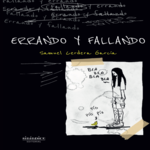The City in the Sea – Edgar Allan Poe
Lo! Death has reared himself a throne
In a strange city lying alone
Far down within the dim West,
Where the good and the bad and the worst and the best
Have gone to their eternal rest.
There shrines and palaces and towers
(Time-eaten towers that tremble not!)
Resemble nothing that is ours.
Around, by lifting winds forgot,
Resignedly beneath the sky
The melancholy waters he.
No rays from the holy heaven come down
On the long night-time of that town;
But light from out the lurid sea
Streams up the turrets silently-
Gleams up the pinnacles far and free-
Up domes- up spires- up kingly halls-
Up fanes- up Babylon-like walls-
Up shadowy long-forgotten bowers
Of sculptured ivy and stone flowers-
Up many and many a marvellous shrine
Whose wreathed friezes intertwine
The viol, the violet, and the vine.
Resignedly beneath the sky
The melancholy waters lie.
So blend the turrets and shadows there
That all seem pendulous in air,
While from a proud tower in the town
Death looks gigantically down.
There open fanes and gaping graves
Yawn level with the luminous waves;
But not the riches there that lie
In each idol’s diamond eye-
Not the gaily-jewelled dead
Tempt the waters from their bed;
For no ripples curl, alas!
Along that wilderness of glass-
No swellings tell that winds may be
Upon some far-off happier sea-
No heavings hint that winds have been
On seas less hideously serene.
But lo, a stir is in the air!
The wave- there is a movement there!
As if the towers had thrust aside,
In slightly sinking, the dull tide-
As if their tops had feebly given
A void within the filmy Heaven.
The waves have now a redder glow-
The hours are breathing faint and low-
And when, amid no earthly moans,
Down, down that town shall settle hence,
Hell, rising from a thousand thrones,
Shall do it reverence.
TRADUCCIÓN
¡Mirad!, la muerte se ha levantado un trono
en una extraña ciudad, que, solitaria,
yace allá abajo en el oscuro occidente,
donde el bueno y el malo y el peor y el mejor
han marchado a su eterno descanso.
Allí templos y palacios y torres
(¡torres devoradas por el tiempo, que no tiemblan!)
no se asemejan a nada que sea nuestro.
Alrededor, olvidadas de los vientos que se alzan,
resignadamente bajo el cielo
yacen las aguas melancólicas.
Ningún rayo desciende de los sagrados cielos
sobre la larga noche de esa ciudad;
pero la luz que brota del refulgente mar
trepa por las torretas en silencio,
lejana y libre brilla en los pináculos,
en cúpulas y agujas, en estancias reales,
en templos, en murallas cual las de Babilonia,
en umbrías glorietas, hace mucho olvidadas,
con hiedras esculpidas y con flores de piedra;
en muchos, muchos maravillosos santuarios
cuyos frisos ornados entretejen
la viola, la vid y la violeta.
Y resignadamente bajo el cielo
yacen las aguas melancólicas.
De tal modo se mezclan en torrecillas y sombras
que en el aire parecen colgar todas,
mientras desde una altiva torre de la ciudad
mira cual un coloso hacia abajo la muerte.
Los templos descubiertos y las abiertas tumbas
al nivel de las ondas luminosas están,
pero ni las riquezas que allí yacen
en diamantinos ojos de los ídolos,
ni los muertos festivamente enjoyados
tientan a las aguas desde sus lechos,
pues no se riza ondulación alguna, ¡ay!
por aquel desierto de cristal,
la calma indica que tal vez los vientos
estén sobre algún mar remoto y más dichoso;
la placidez sugiere que los vientos se encuentran
sobre otros mares menos atrozmente serenos.
Pero mirad: ¡se está agitando el aire!,
la ola: ¡hay movimiento en ella!
cual si hubieran las torres empujado,
con un leve hundimiento, la oscura marea;
como si sus remates hubieran dejado
un débil vacío en el cielo vaporoso.
Las ondas ahora tienen un fulgor más rojizo
-las horas alientan tenue y quedo-
y cuando, muy abajo esa ciudad se siente finalmente,
alzándose el infierno desde un millar de tronos,
le rendirá homenaje.
Traducción sacada de: Poesía Completa. Edgar Allan Poe. Traducción de María Condor y Gustavo Falaquera. Edición bilingüe. Ed. poesía Hiperión.
